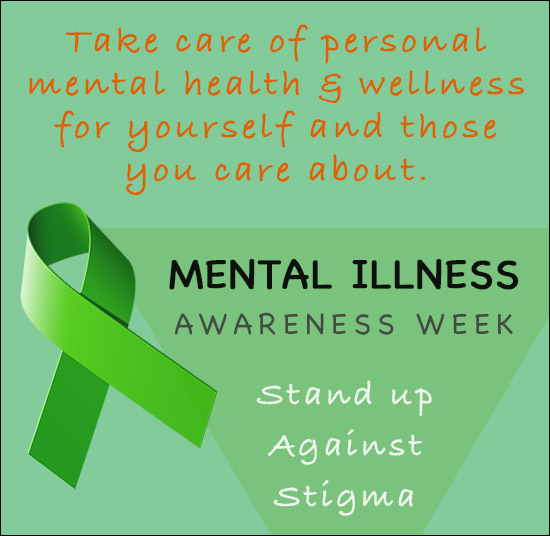currently have, or at some stage have had, an incapacitating mental disorder. according to the American Psychiatric Association. Psychological health problem, particularly anxiety, is predicted to turn into one of the major health problems in the future. The World Health Company (WHO) mentions that anxiety is the leading reason for impairment worldwide.
As youth and teen mental health conditions are so common, it's baffling that we are not equipping our children with an understanding of mental health. Undiagnosed, inadequately treated or untreated mental illness can seriously impact their capability to discover and grow. It can result in negative coping mechanisms and at worst, may result in suicide.
School is where friendships start. It is where teenagers hone their sense of self-worth. It's also the location where kids require to discover that their behavior towards others can cause serious self-respect problems. Many students experience conflicts, bullying and social exclusion at school. Alex Crotty was just eleven when she began feeling unpleasant all the time.
She suffered alone and even changed schools, however that did not help. It was just when she was 14 that she told her mother what was going on. She was identified with major anxiety and anxiety and had the ability to receive treatment. Her story exposes the trouble youths experience when it concerns speaking up about their depression or anxiety.
Some are much better at handling these than others. Lots of kids feel anxious, ranging from mild symptoms to more serious kinds, such as anxiety attack. When these signs are disregarded, they can lead to anxiety, absence of performance and increased risk of substance abuse. The Netflix show "13 Reasons" is presently in its 2nd season.
The smart Trick of How Does Body Image Affect Mental Health That Nobody is Talking About
She devotes suicide and leaves 13 tapes discussing why. The program has numerous detractors, including health awareness specialists and parents who believe that it provides really little insight into the psychology of suicide. who does mental health affect. They think it highlights simply how bad things can get and how vicious teenagers can be and might even contribute to brand-new methods for teenagers to believe about suicide.
Suicide is the 2nd leading cause of death for individuals aged 15 to 24 in the U.S. Existing research indicates a possible connection between increased social networks usage and psychological health although it's still unclear exactly how they are linked. What is clear is that young people are the most active users.
Without any long-term research studies having been completed, we are still largely guessing at its influence. The upside of social networks is that teens are hardwired to socialize, and social media makes it easy and immediate. Teenagers in marginalized groups may discover it easier to make good friends and discover support. The disadvantage of social networks is that those using social networks may be confronted with many negatives such as toxic contrasts, cyberbullying and less in person interactions.
Family, pals, instructors, and people themselves often discover little modifications in believing and habits prior to a mental illness appears in the full-blown form. Finding out about early indication, and doing something about it can help. It can decrease the intensity of the disease, and it might even be possible to prevent or delay the development of a major mental disorder.


In an article composed by Nancy Barile, M.A.Ed. on the significance of psychological health awareness in schools, she relates how she discovered some extreme changes in one of her students over a short time period. The trainee no longer did her research, and she would come to school in the exact same clothing, although she 'd formerly been precise about her look.
Some Known Questions About How Does Musical Therapy Affect Mental Health.
Barile had some training in psychological health issues and acknowledged that the trainee remained in difficulty. Social employees on the staff had the ability to talk to the student and discovered that she was depressed, suicidal and in need of instant psychiatric intervention. She was admitted to the hospital for a brief while, given medication and therapy and handled http://troyzqon755.almoheet-travel.com/the-9-minute-rule-for-how-does-mental-health-affect-homelessness to finish with her class.
79% of British parents feel that psychological health education should belong of the curriculum in schools. Across the world, moms and dads comprehend the need for mental health education for children. With 50% of mental health conditions establishing in children of age 14 or below, the support for the cause is growing rapidly.
Simply as physical education becomes part of the curriculum in schools, psychological health awareness and education ought to be too. Our children invest the majority of their day at school. We require to empower them with knowledge about mental health problem. A growing number of schools are beginning to realize the importance of psychological health education. how does sleep affect mental health.
School-employed mental health professionals deal with teachers to provide support and with moms and dads to much better comprehend trainees' requirements and carry out suitable assistance. In July 2018, New york city became the very first state in the U.S. to require mental health education for all trainees. The School Mental Health program will promote the healthy emotional, social, and behavioral advancement of all the trainees.
Psychological health needs will be assessed, and access will be supplied to mental health services and programs (what does affect mean in mental health). As reported in United States News and World Report, a few little studies have found "that mentor high school trainees about psychological health improved their mindsets towards treatment, increased determination to seek aid from a therapist and enhanced their overall psychological health literacy." There is a pushing need for more research studies to figure out programs' efficiency and recognize methods to enhance them.
The Facts About How Does Too Much Light Affect Ones Mental Health Uncovered
Until it is, teachers and administrators need to assist shine the light on the concept of self-care. And, they need to emphasize the reality that psychological health is an essential part of health. THE BOTTOM LINE A cultural shift in attitudes about psychological health requires to start with the young.
Schools need to promote an environment in schools where psychological health issues Substance Abuse Facility can be determined and dealt with without being stigmatized. Awareness needs to be raised about mental health crises, such as self-harm, drug abuse, eating disorders and other Look at this website negative coping behavior needs to be produced. If everyone in schools is empowered with knowledge, and discussion is encouraged, trainees will have the freedom to open up about what they are going through.
As teachers, parents and students throughout the country continue to advocate for more public school financing, the spaces in resources available to trainees continue to broaden. One significant location of concern getting more attention over the past few years is the shortage of psychological health resources in schools. Without the needed services, trainees, particularly those undiagnosed or without treatment, are falling back their peers.
are experiencing anxiety, anxiety and/or behavioral disorders. "Mental illness in childhood can adversely affect ... children's capability to attain social, emotional, cognitive, and scholastic milestones," the report stated. Evaluating information from the 2016 National Survey of Children's Health, the scientists discovered that 7.1% of kids aged 3-17 years had stress and anxiety issues, 7.4% had a behavioral conduct issue, and 3.2% had anxiety.
The research study likewise points to a near 20 percent treatment gap between kids identified with anxiety versus those experiencing anxiety. Overall, approximately 78% of kids with depression have actually received treatment, whereas treatment for anxiety and behavioral/conduct problems was 59% and 54%, respectively. Without access to services, trainees with stress and anxiety are at greater danger of later developing anxiety.